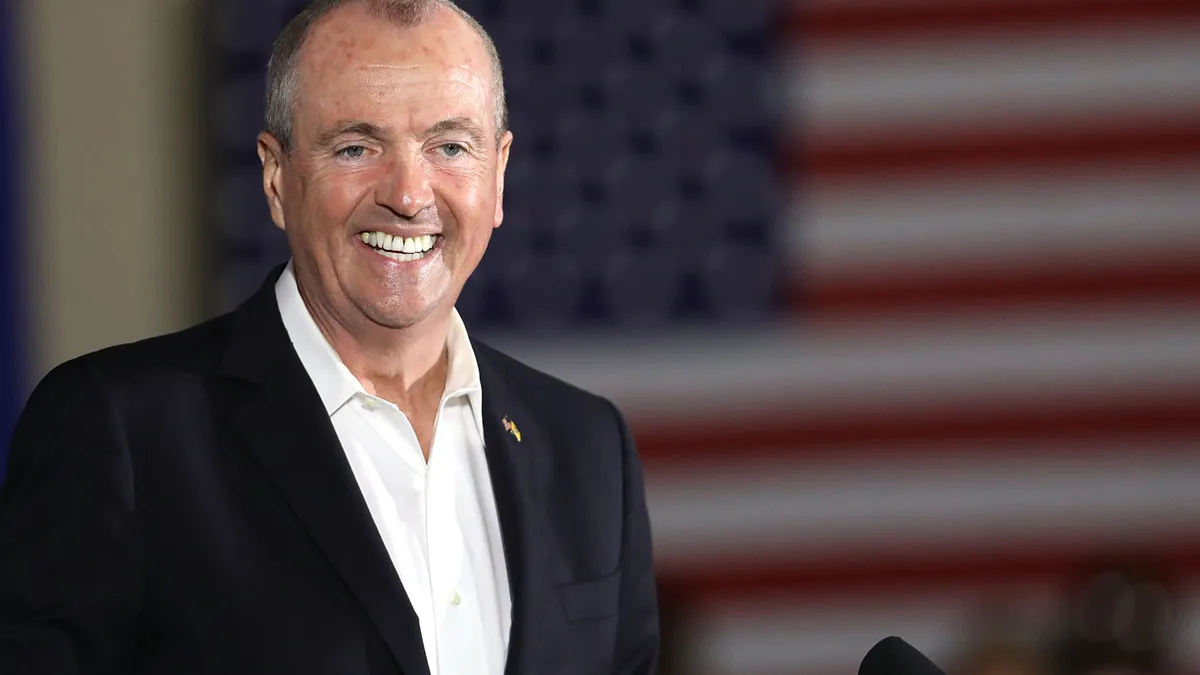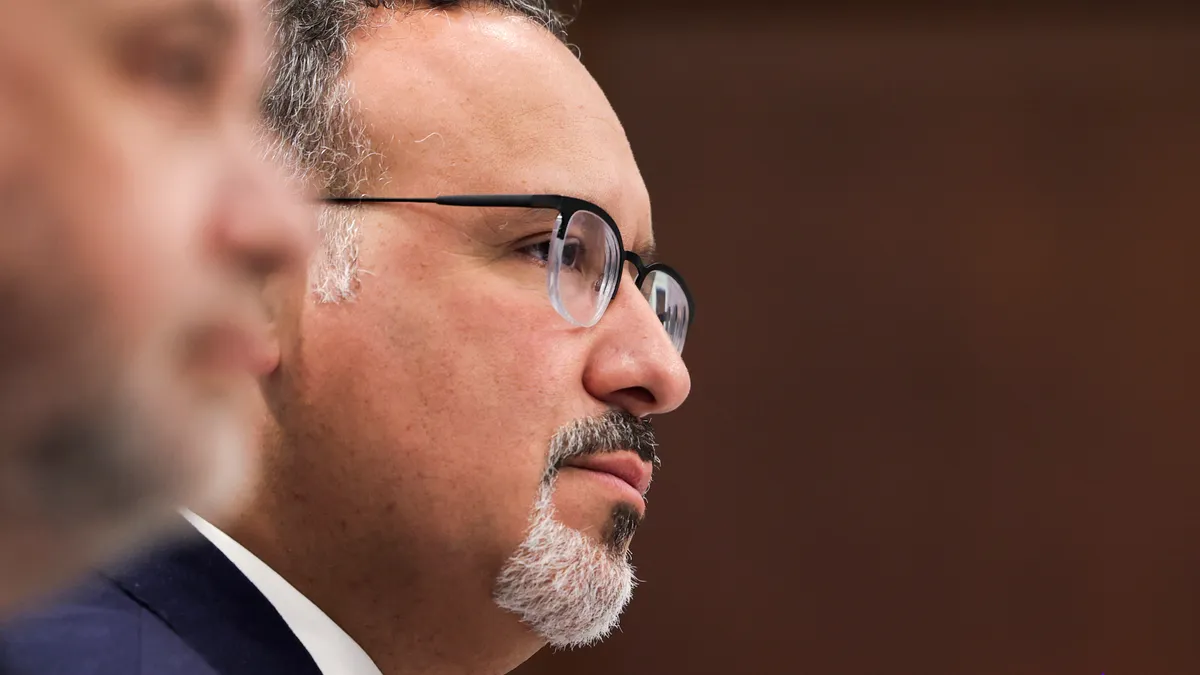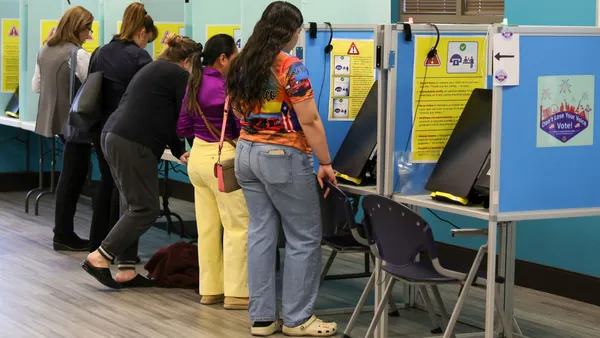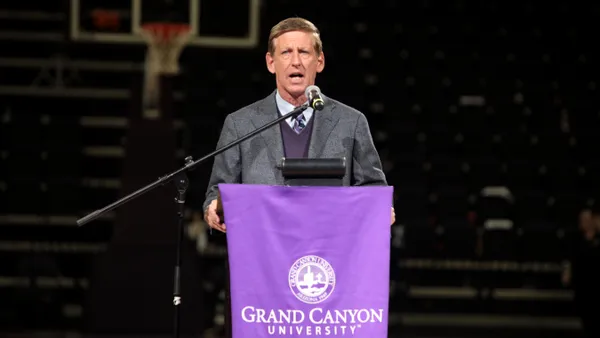Dive Brief:
- New Jersey regulators are now empowered to revoke higher education institutions’ authority to grant degrees and credentials from career-oriented academic programs if the state finds they don’t meet quality standards.
- A new law Gov. Phil Murphy, a Democrat, signed last week that requires state agencies — such as the Office of the Secretary of Higher Education — to create metrics for gauging the success of credit- and noncredit-bearing career-centered programs. These standards will be based on a ratio: tuition rates versus graduates’ anticipated earnings in an occupation.
- These benchmarks apply to all institution types: public two- and four-year, private nonprofit, and for-profit colleges.
Dive Insight:
New Jersey’s labor commissioner, Robert Asaro-Angelo, in a statement said the state is proud to enact gainful employment standards, a term former President Barack Obama's administration popularized. The phrase refers to policies designed to ensure students don’t take on significant debt for training programs that will lead to low salaries.
The Obama White House devised a gainful employment regulation that threatened to strip federal financial aid from colleges whose graduates were saddled with ruinous amounts of debt.
But the Trump administration rescinded the rule in 2019, claiming it unfairly picked on for-profit institutions.
The Biden administration is constructing its own gainful employment regulatory proposal. It initially intended to release a draft in July but delayed that until April 2023, which would mean the final rule would take effect by mid-2024 at the earliest.
Murphy, the New Jersey governor, cast the state’s new law as a safeguard against debt graduates can’t repay.
“Higher education programs that are designed to prepare students for a specific occupation should offer both high-quality training and affordable costs based on the wages that program graduates are likely to earn,” Murphy said in a statement.
State regulators will develop the debt-to-earnings ratio for the colleges in their respective purview. For instance, the Commissioner of Labor and Workforce Development will establish the performance standards for private career schools, including those authorized by a professional or occupational board.
The state agencies must create the standards within a year of the bill taking effect, which it did as soon as it was signed into law.














